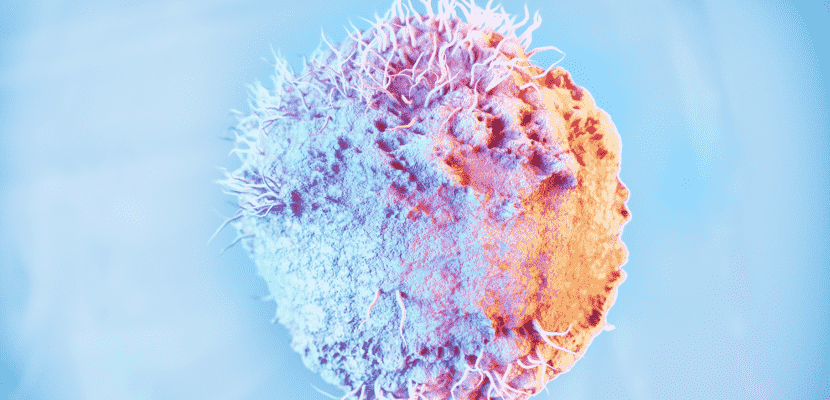selective treatment
Robert Klatt
Genetically modified herpes virus (icon image)
)kcotS ebodAsivercsurivsepreH(Photo: ©
- an as terminal cancer patient was with genetically modified herpesviruses cured
- The modified ones Herpes simplex virus (HSV) to grab selectively attack the cancer cells and activate the immune system
- Also at other patientswas the new treatment method successfully tested
A cancer patient believed to be incurable was cured with genetically modified herpes viruses. The man has been completely cancer-free for two years.
London (England). scientist of Institute of Cancer Research (ICR) have a cancer patient in an early clinical trial with genetically modified herpes viruses treated. Again BBC reported, the 39-year-old subject Krzysztof Wojkowski was diagnosed with salivary gland cancer in 2017. Although Wojkowski has had surgery and other treatments several times, he is Cancer kept growing.
“I was told there were no more options for me and I would be cared for at the end of my life. That was devastating. So it was incredible that I was given the opportunity to participate in the study.”
As part of the Phase 1 safety study, Wojkowski received the experimental several times drug RP2. The modified herpes virus it contains attacks tumor cells.
“I had injections every two weeks for five weeks that completely eradicated my cancer. I’ve been cancer free for two years now.”
Attenuated herpes simplex virus (HSV)
According to a presentation on the ESMO Congress 2022 The experimental therapy is based on a weakened form of the herpes simplex virus (HSV). virus, which usually triggers cold sores. The ICR scientists modified the genes of the virus so that it selectively enters cancer cells. The virus, on the other hand, ignores normal body cells. In contrast to most other cancer drugs, which act systemically, i.e. affect the entire body, the modified herpes virus only attacks the tumor directly.
Double strike against cancer cells
As Kevin Harrington explains, the drug RP2 causes a “double strike” against cancer cells. Once the virus has infiltrated the cancer cell, it replicates until it explodes. The modified virus also triggers the immune system to attack the remains of the cancer cells.
“Our study shows that a genetically engineered cancer-killing virus can deliver a double whammy against tumors – destroying the cancer cells directly from the inside while simultaneously mobilizing the immune system against them.”
Success in other patients too
In addition to Wojkowski, other patients received the drug as part of the study. In three out of nine patients (33%) who were treated exclusively with the modified herpesviruses, the tumors shrank significantly. There were also treatment successes in seven out of 30 patients (23.3%) who were treated with conventional means in addition to the experimental drug.
“It’s rare for early-stage clinical trials to have such good response rates because their primary purpose is to test the safety of the treatment and involve patients with very advanced cancers who are no longer treated by current treatments.”
High response rates and few side effects
In addition to the high response rates, the side effects are also positive. Only slight side effects such as tiredness were observed. Further studies are now to investigate the effect of the genetically modified herpes virus in various cancer patients. However, according to Harrington, the positive interim results give hope that the modified viruses could be a new treatment option for many patients.
“Our initial study results suggest that a genetically engineered form of the herpesvirus could potentially be a new treatment option for some patients with advanced cancer, including those who have not responded to other forms of immunotherapy. I look forward to seeing more benefits as we treat more patients.”
Jonathan Zager, an employee at a cancer center in the US state of Florida who did not work on the study, also describes the results as promising.
“We will see more studies in the near future. I’m excited and certainly not discouraged or skeptical.”

